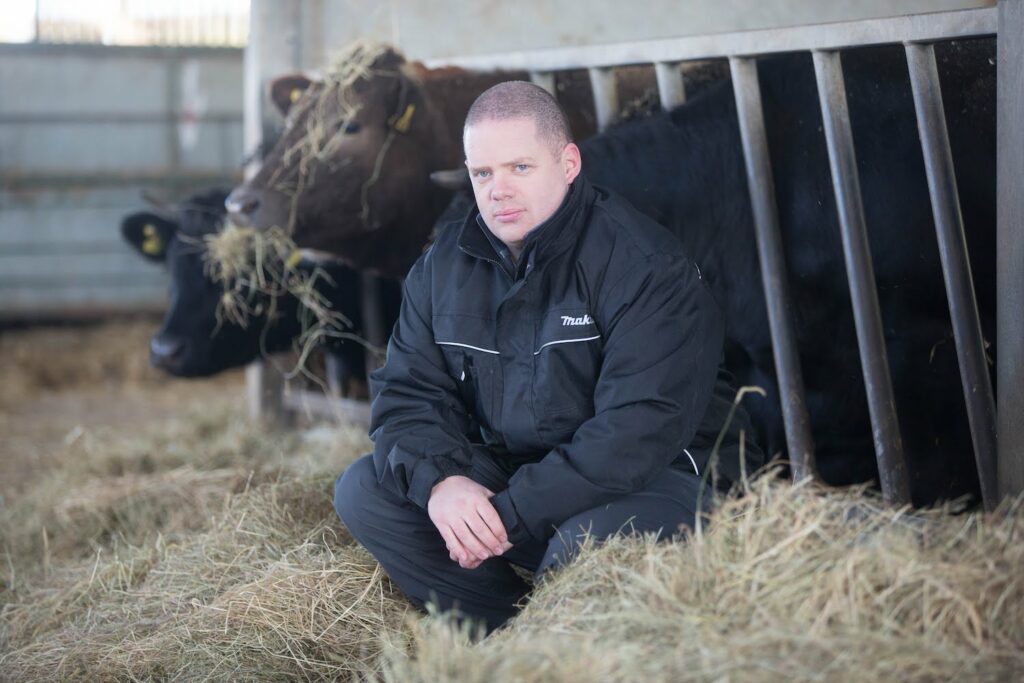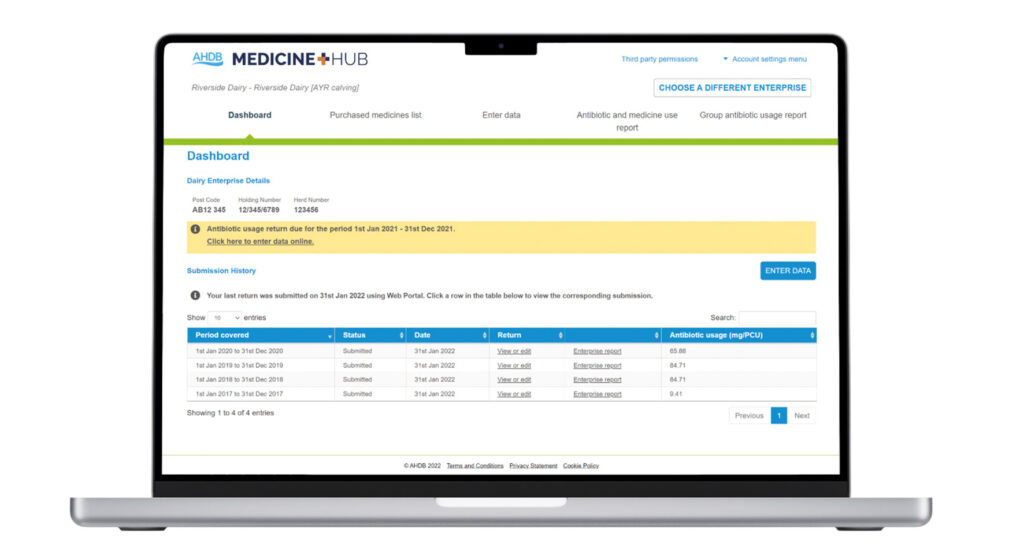Online tool helps cattle and sheep farmers cut antibiotic use
30th August 2022
Northants beef farmer Mark Jelley (pictured) has seen strong reduction in his farm’s use of antibiotics and been able to identify key herd health issues, with the help of his
Northants beef farmer Mark Jelley (pictured) has seen strong reduction in his farm’s use of antibiotics and been able to identify key herd health issues, with the help of his vet and the AHDB Medicine Hub. But the Hub could also offer wider benefits to trade and the industry’s reputation. Sarah Kidby reports.
AHDB Medicine Hub, which officially launched last year, aims to generate data on the ruminant sector’s antibiotics usage. While the Veterinary Medicines Directorate (VMD) reports annual data on antibiotic sales, many products can be used for multiple species, from cattle and sheep to horses and even dogs and cats. It can be very difficult to tease out which sector is using what, explained vet and AHDB head of animal health and welfare Mandy Nevel.
The Hub’s biggest value for farmers, she believes, is being able to spot trends on their own farm, opening the door to conversations about improving herd health with their vet. In time it will also allow for benchmarking between farms which can be very powerful for driving change. On a wider scale, the data is important for providing evidence that the sectors are low users of antibiotics. The EU now requires member states to record antibiotic usage across food-producing species; and although the UK’s pig and poultry sectors already do this, the Hub provides a platform for the ruminant sector to do the same. Although we are no longer in the EU, to maintain trade, we need to be open to sharing our results with the EU, Mrs Nevel said.
Dr Gavin Morris, group animal welfare and veterinary manager at cattle and sheep processor Dunbia, said that while antibiotic use in UK livestock is believed to be low, we are not able to demonstrate this at farm level in England for cattle and sheep – or whether they are being used responsibly.
Dunbia’s UK customers, including retailers, the food service sector and wholesalers are all looking for that reassurance, he added. “With 16% of UK beef and 29% of sheep meat being exported this is also a huge issue for global markets and UK export potential and credibility. […] We must stay ahead of the wider game if we want to ensure that beef and lamb continues to attract customers both in the UK and worldwide.”
Without a tool such as Medicine Hub, a much more complex and challenging system could be imposed, with individual AMU information having to be provided for each load, each time, he added.
Although the focus is initially on antibiotics, the Hub has the capacity to be used as a full medicine book, recording and monitoring the use of other drugs on farm such as wormers and anti-inflammatories.
On-farm experience
Mark Jelley runs a 500-acre mixed farm with 95 head of suckler cows, finishing all calves on the farm to sell direct to abattoirs or a local box scheme. Mark was aware of the Hub through his work with the NFU and AHDB and as chair of the Cattle Antibiotic Guardian Group. Getting the farm involved required “fairly minimal” effort from him, he said. After first setting up an account around 18 months ago, he gave his veterinary practice consent to annually upload his sales data and created a link to the BCMS system so the Hub can pull his cattle population data across.
Mark has worked closely with his vet for a number of years, since his area came under significant TB pressure. As a Red Tractor farm, they were already looking at antibiotic data, but the Hub presents it in a more user-friendly way, Mark said.
It highlighted that the farm was using a lot of antibiotics for calves with naval infections due to inadequate pen hygiene. “I wouldn’t say it had gone unnoticed, but it’s a busy time of year, with a number of people giving these injections. It’s all recorded but when we looked back over the data we realised we were getting a bit of a pinch point toward the second half of the calving period.”
Additionally, when Towcester Farm Vets began working with Mark five years ago, the farm’s pneumonia vaccine was not working and there was strong use of antibiotics as a result. After changing the vaccine, pneumonia antibiotic use more or less stopped.
Mark’s vet Els Lane, said analysing the data allows vets and farmers to see why antibiotics are being used, target improvements on problem areas such as lameness or pneumonia, and make informed choices or tweaks. Looking at the farm’s latest antibiotics report, there was a strong reduction in usage between 2020-2021.
Find out more
To start using the Hub, AHDB recommends first speaking to your vet. As farm data belongs to the farmer, you can either upload your own data, or give permission for your vet to do so.
A dedicated bureau service is available for users with queries or difficulties using the system.
For more information visit: https://ahdb.org.uk/medicine-hub



